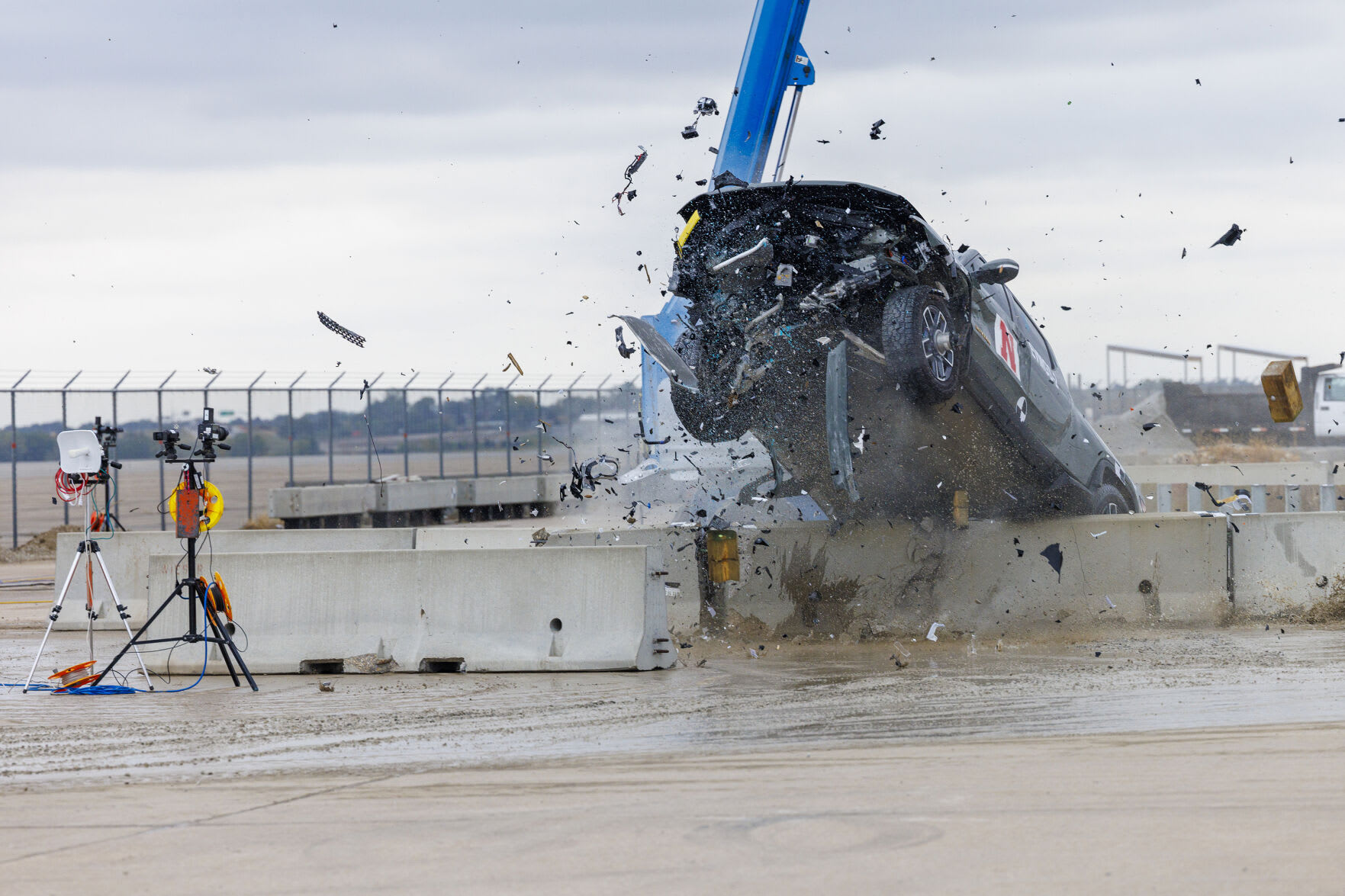Lucid Air Fire in Poland Crash Raises Questions about Safety of Electric Vehicles
On December 24, 2022, a Lucid Air Dream Edition Performance electric car crashed in Poland, resulting in a fire that destroyed the vehicle and killed the driver. This incident has raised concerns about the safety of electric vehicles (EVs), particularly in the event of a crash.

Circumstances of the Crash
The crash occurred on a rural road in the northern Polish town of Słupsk. According to preliminary reports, the Lucid Air was traveling at a high speed when it veered off the road and struck a tree. The impact caused the battery to ignite, leading to an intense fire that consumed the vehicle.

Cause of the Fire
The exact cause of the battery fire is still under investigation. However, experts believe that the damage to the battery pack caused by the crash may have triggered a thermal runaway reaction. This is a process in which the battery's internal temperature rapidly increases, releasing flammable gases and igniting the cell components.
Response from Lucid Motors
Lucid Motors, the manufacturer of the Lucid Air, issued a statement expressing condolences to the family of the victim. The company also stated that it is cooperating with authorities to determine the cause of the fire.

Lucid Motors has a strong safety record, with the Lucid Air receiving a 5-star safety rating from the National Highway Traffic Safety Administration (NHTSA) in the United States. However, this incident has raised questions about the potential risks associated with EVs, especially in high-impact crashes.
Concerns about EV Safety
The Lucid Air fire has reignited concerns about the safety of EVs in general. Some critics have argued that EVs are more likely to catch fire than gasoline-powered vehicles, due to the presence of large lithium-ion batteries.
However, it is important to note that EV fires are rare. According to the National Fire Protection Association (NFPA), EVs have a lower risk of fire than gasoline-powered vehicles. In fact, a study conducted by the Swedish National Road and Transport Research Institute (VTI) found that EVs are less likely to catch fire in a crash than gasoline or diesel vehicles.
Addressing Safety Concerns
To address safety concerns, EV manufacturers are working to improve battery technology and safety systems. These include:
* Enhanced battery designs: New battery designs incorporate fire-resistant materials and thermal management systems to prevent thermal runaway.
* Advanced safety features: Most EVs come equipped with advanced safety features such as lane departure warnings, automatic braking, and blind spot monitoring, which can help to reduce the risk of crashes.
* Battery isolation systems: Some EVs use battery isolation systems that can separate the battery from the rest of the vehicle in the event of a crash, reducing the risk of fire.
While the Lucid Air fire incident is a tragic reminder of the potential risks associated with EV crashes, it is important to remember that EVs are generally considered to be safe. EV manufacturers are continuously working to improve battery technology and safety systems to address concerns and ensure the safety of drivers and passengers.
It is essential for drivers of all vehicles, including EVs, to be aware of the potential risks and to drive responsibly. By following safe driving practices and adhering to vehicle recommendations, we can minimize the likelihood of accidents and fires.
As the EV industry continues to evolve, it is likely that we will see further advancements in safety technology that will enhance the safety of these vehicles even further.
